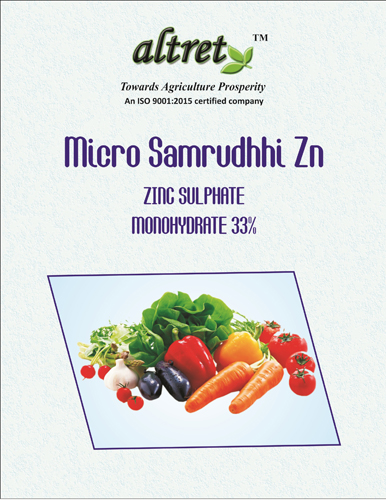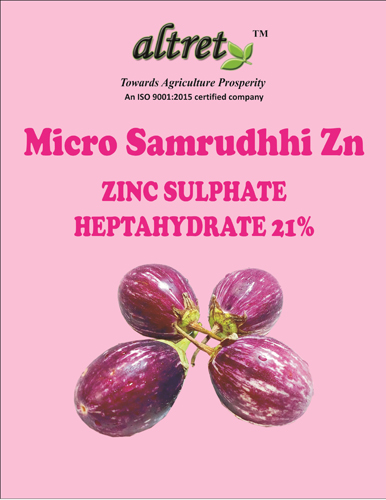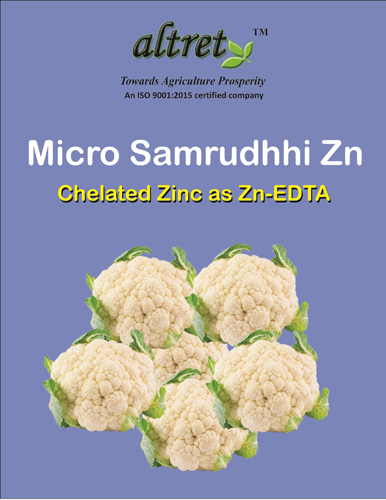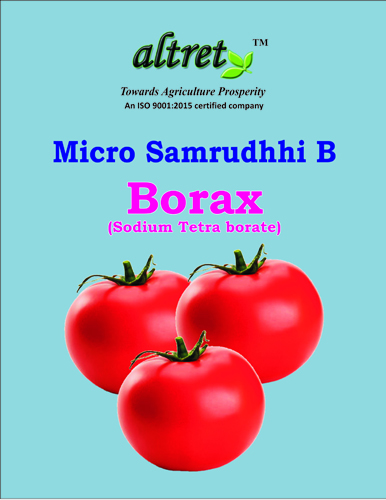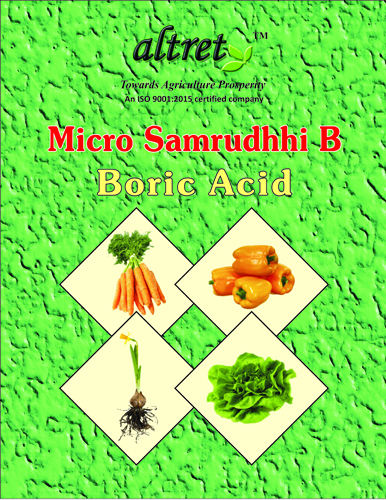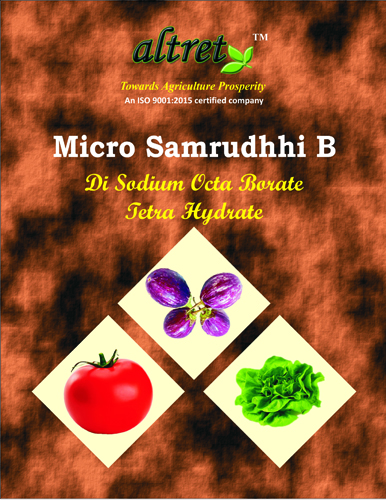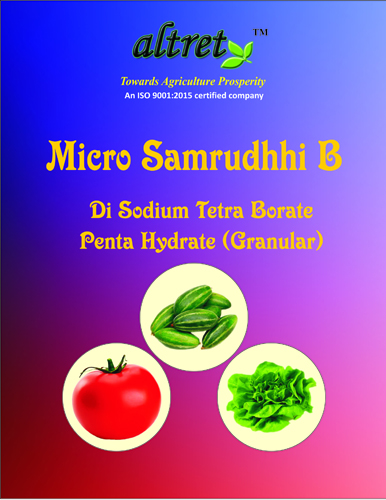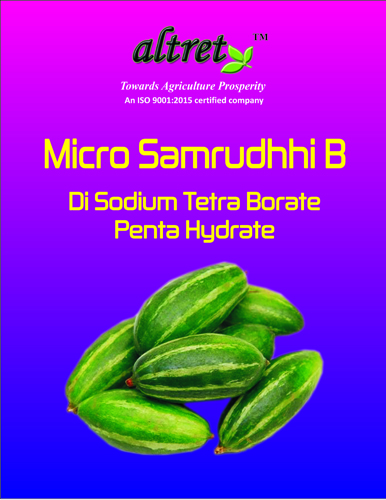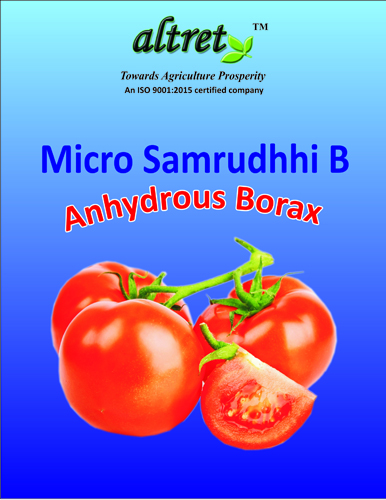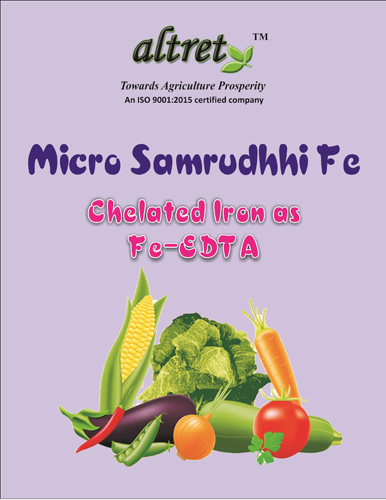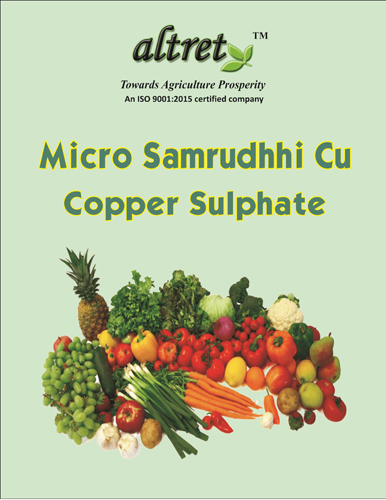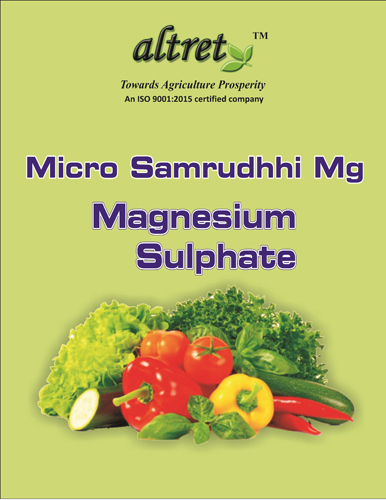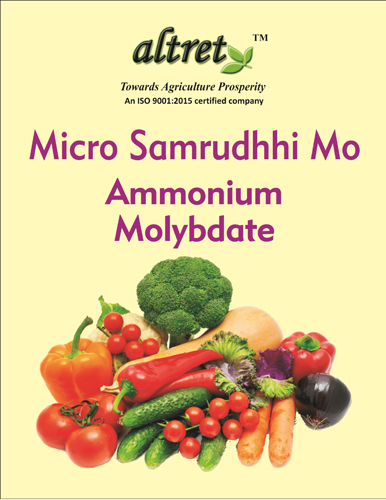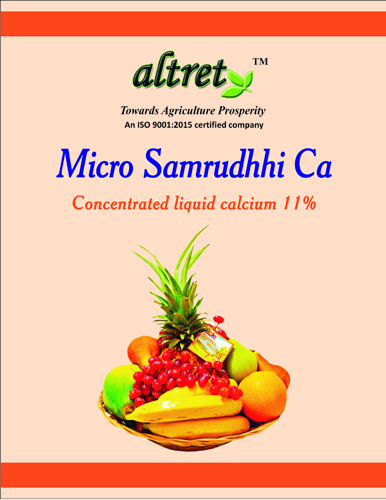- Email Us : altret@outlook.com
- Working Hours : Monday - Friday, 08 am - 05 pm
- Call : +91 9023295126
ZINC SULPHATE MONOHYDRATE 33%
Zinc (Zn) is one of the eight essential micronutrients. In plants, zinc is a key constituent of many enzymes and proteins. It plays an important role in a wide range of processes, such as growth hormone production and internodes elongation. It is used in the formation of chlorophyll and some carbohydrates, conversion of starches to sugars and its presence in plant tissue helps the plant to withstand cold temperatures. Zinc is essential in the formation of auxins, which help with growth regulation and stem elongation.
Dosage:- 5-6kg/acre.
Dosage to be decided on basis of zinc deficiency in soil
ZINC SULPHATE HEPTAHYDRATE 21%
Zinc (Zn) is one of the eight essential micronutrients. In plants, zinc is a key constituent of many enzymes and proteins. It plays an important role in a wide range of processes, such as growth hormone production and internodes elongation. It is used in the formation of chlorophyll and some carbohydrates, conversion of starches to sugars and its presence in plant tissue helps the plant to withstand cold temperatures. Zinc is essential in the formation of auxins, which help with growth regulation and stem elongation.
Dosage:- 12-25 kg/acre.
Dosage to be decided on basis of zinc deficiency in soil
Chelated Zinc as Zn-EDTA
It is plant growth regulator which improves the overall health, growth and development of plants. These substances may be either synthetically produced or obtained from biological derivatives. Growth promoters (PGP) are effective in improving the crop, quality and productivity, especially biological derivatives are more effective and safe also provide immunity to plants, protecting from different types of plants disease due to biotic stress.
Dosage:- Mix 500gm with water soluble fertilizer or soil and apply uniformly for one acre.
Dissolve 100g m in 150-200ltr of water for spray over 1 acre standing crop
Borax (Sodium Tetra borate)
Boron is used with calcium in cell wall synthesis and is essential for cell division (creating new plant cells). Boron requirements are much higher for reproductive growth so it helps with pollination, and fruit and seed development. Other functions include translocation of sugars and carbohydrates, nitrogen metabolism, formation of certain proteins, regulation of hormone levels and transportation of potassium to stomata (which helps regulate internal water balance).
Dosage:- 2-3kg/acre in drip or soil application.
2g/Ltr water for spray
Boric Acid
Boron is used with calcium in cell wall synthesis and is essential for cell division (creating new plant cells). Boron requirements are much higher for reproductive growth so it helps with pollination, and fruit and seed development. Other functions include translocation of sugars and carbohydrates, nitrogen metabolism, formation of certain proteins, regulation of hormone levels and transportation of potassium to stomata (which helps regulate internal water balance).
Dosage:- 2-3kg/acre in soil application
Di Sodium Octa Borate Tetra Hydrate
Boron is used with calcium in cell wall synthesis and is essential for cell division (creating new plant cells). Boron requirements are much higher for reproductive growth so it helps with pollination, and fruit and seed development. Other functions include translocation of sugars and carbohydrates, nitrogen metabolism, formation of certain proteins, regulation of hormone levels and transportation of potassium to stomata (which helps regulate internal water balance).
Dosage:- 2-3kg/acre in drip or soil application
Dissolve 2gm in 1ltr of water for foliar spray
Di Sodium Tetra Borate Penta Hydrate (Granular)
Boron is used with calcium in cell wall synthesis and is essential for cell division (creating new plant cells). Boron requirements are much higher for reproductive growth so it helps with pollination, and fruit and seed development. Other functions include translocation of sugars and carbohydrates, nitrogen metabolism, formation of certain proteins, regulation of hormone levels and transportation of potassium to stomata (which helps regulate internal water balance).
Dosage:- 4-6kg/acre in loamy and heavy soils and 2-4 kg/acre in sandy/ light soils
Di Sodium Tetra Borate Penta Hydrate
Boron is used with calcium in cell wall synthesis and is essential for cell division (creating new plant cells). Boron requirements are much higher for reproductive growth so it helps with pollination, and fruit and seed development. Other functions include translocation of sugars and carbohydrates, nitrogen metabolism, formation of certain proteins, regulation of hormone levels and transportation of potassium to stomata (which helps regulate internal water balance).
Dosage:- 4-6kg/acre in loamy and heavy soils and 2-4 kg/acre in sandy/ light soils
Anhydrous Borax
Boron is used with calcium in cell wall synthesis and is essential for cell division (creating new plant cells). Boron requirements are much higher for reproductive growth so it helps with pollination, and fruit and seed development. Other functions include translocation of sugars and carbohydrates, nitrogen metabolism, formation of certain proteins, regulation of hormone levels and transportation of potassium to stomata (which helps regulate internal water balance).
Dosage:- 2-3kg/acre in drip or soil application
Dissolve 2gm in 1ltr of water for foliar spray
Ferrous Sulphate
Iron is a constituent of several enzymes and some pigments, and assists in nitrate and sulfate reduction and energy production within the plant. Although iron is not used in the synthesis of chlorophyll (the green pigment in leaves), it is essential for its formation. This explains why plants deficient in iron show chlorosis in the new leaves.
Dosage:- 12-25 kg/acre.
Dosage to be decided on basis of ferrous deficiency in soil
Chelated Iron as Fe-EDTA
Iron is a constituent of several enzymes and some pigments, and assists in nitrate and sulfate reduction and energy production within the plant. Although iron is not used in the synthesis of chlorophyll (the green pigment in leaves), it is essential for its formation. This explains why plants deficient in iron show chlorosis in the new leaves.
Dosage:-Mix 500gm with water soluble fertilizer or soil and apply uniformly for one acre.
Dissolve 100g m in 150-200ltr of water for spray over 1 acre standing crop
Manganese Sulphate
Manganese is used in plants as a major contributor to various biological systems including photosynthesis, respiration, and nitrogen assimilation. Manganese is also involved in pollen germination, pollen tube growth, root cell elongation and resistance to root pathogens.
Dosage:- 5-6kg/acre.
Foliar spray of 0.5 % manganese sulphate solution
Copper Sulphate
Copper activates some enzymes in plants which are involved in lignin synthesis and it is essential in several enzyme systems. It is also required in the process of photosynthesis, is essential in plant respiration and assists in plant metabolism of carbohydrates and proteins. Copper also serves to intensify flavor and color in vegetables and color in flowers.
Dosage:- 1kg/acre or Foliar spray of 0.025 % solution of copper sulphate
Magnesium Sulphate
Magnesium is the powerhouse behind photosynthesis in plants. Without magnesium, chlorophyll cannot capture sun energy needed for photosynthesis. In short, magnesium is required to give leaves their green color. Magnesium in plants is located in the enzymes, in the heart of the chlorophyll molecule. Magnesium is also used by plants for the metabolism of carbohydrates and in the cell membrane stabilization.
Dosage:- 25kg/acre in soil application
Ammonium Molybdate
Molybdenum is involved in symbiotic N-fixation and protein synthesis in crops. Molybdenum is utilized by selected enzymes to carry out redox reactions. Enzymes that require molybdenum for activity include nitrate reductase, xanthine dehydrogenase, aldehyde oxidase and sulfite oxidase.
Dosage:- 2-3 kg of ammonium molybdate at the time of planting Alternatively, 0.1- 0.3 % ammonium molybdate solution may be foliar sprayed 2-3 times at 10 days interval.
Concentrated liquid calcium 11%
Calcium plays a very important role in plant growth and nutrition, as well as in cell wall deposition. Calcium plays a critical metabolic role in carbohydrate removal. Calcium neutralizes cell acids. Calcium, is responsible for holding together the cell walls of plants. When calcium is deficient, new tissue such as root tips, young leaves, and shoot tips often exhibit distorted growth from improper cell wall formation. Calcium is also used in activating certain enzymes and to send signals that coordinate certain cellular activities.
Dosage:- Apply 50 Ltr of Calcium per Acre at early fruit set and early fruit development to supply calcium.

